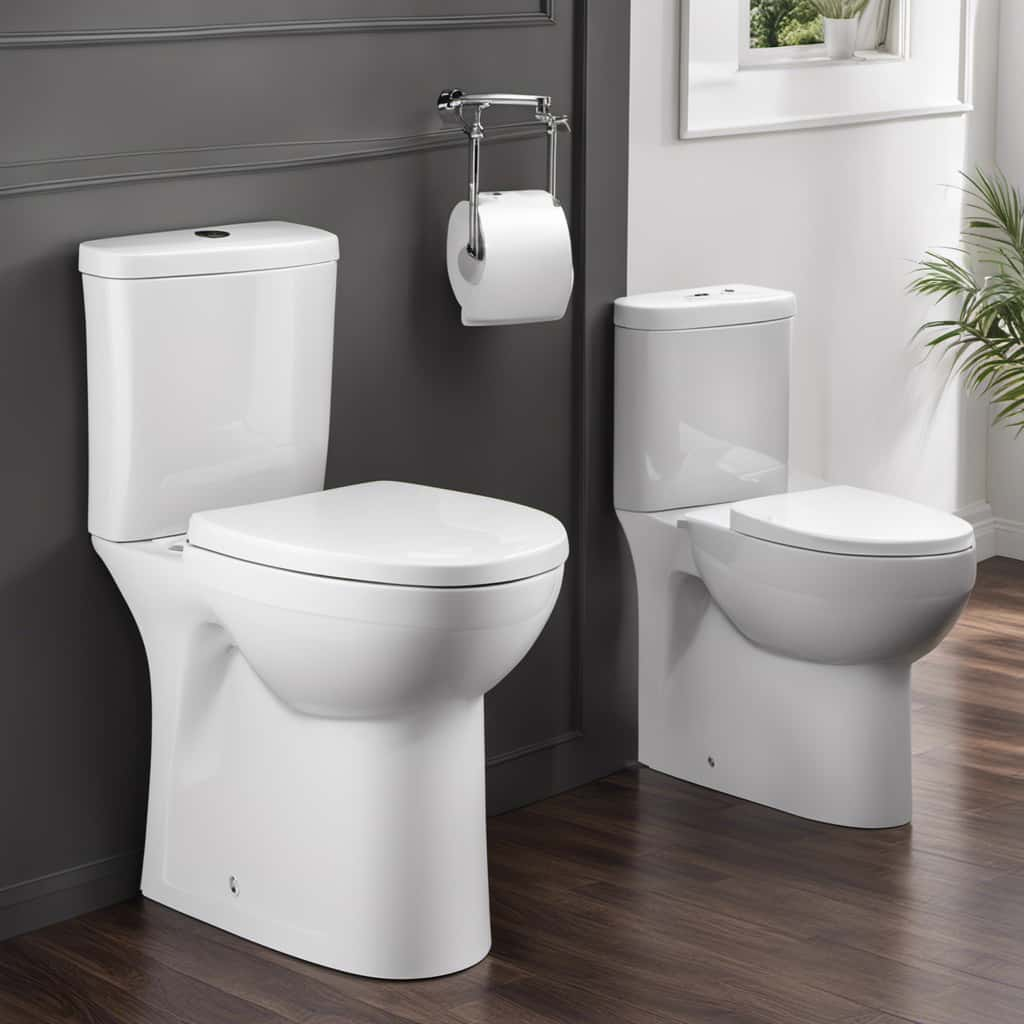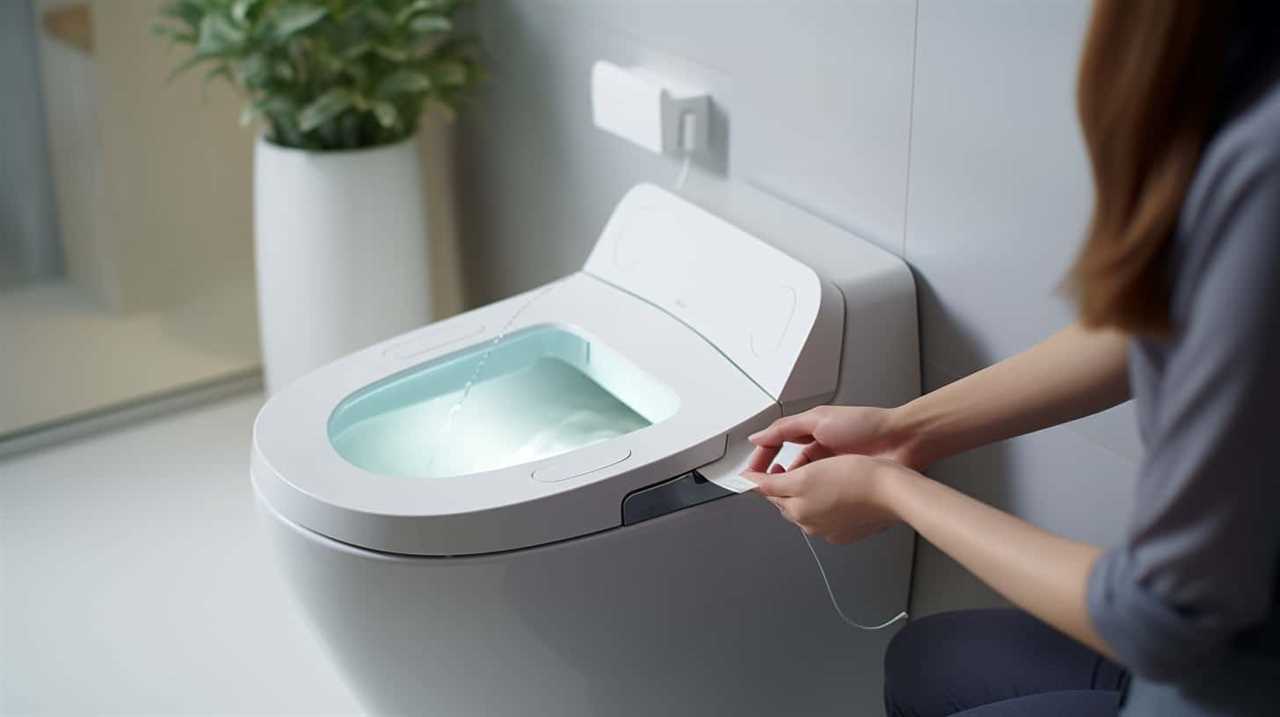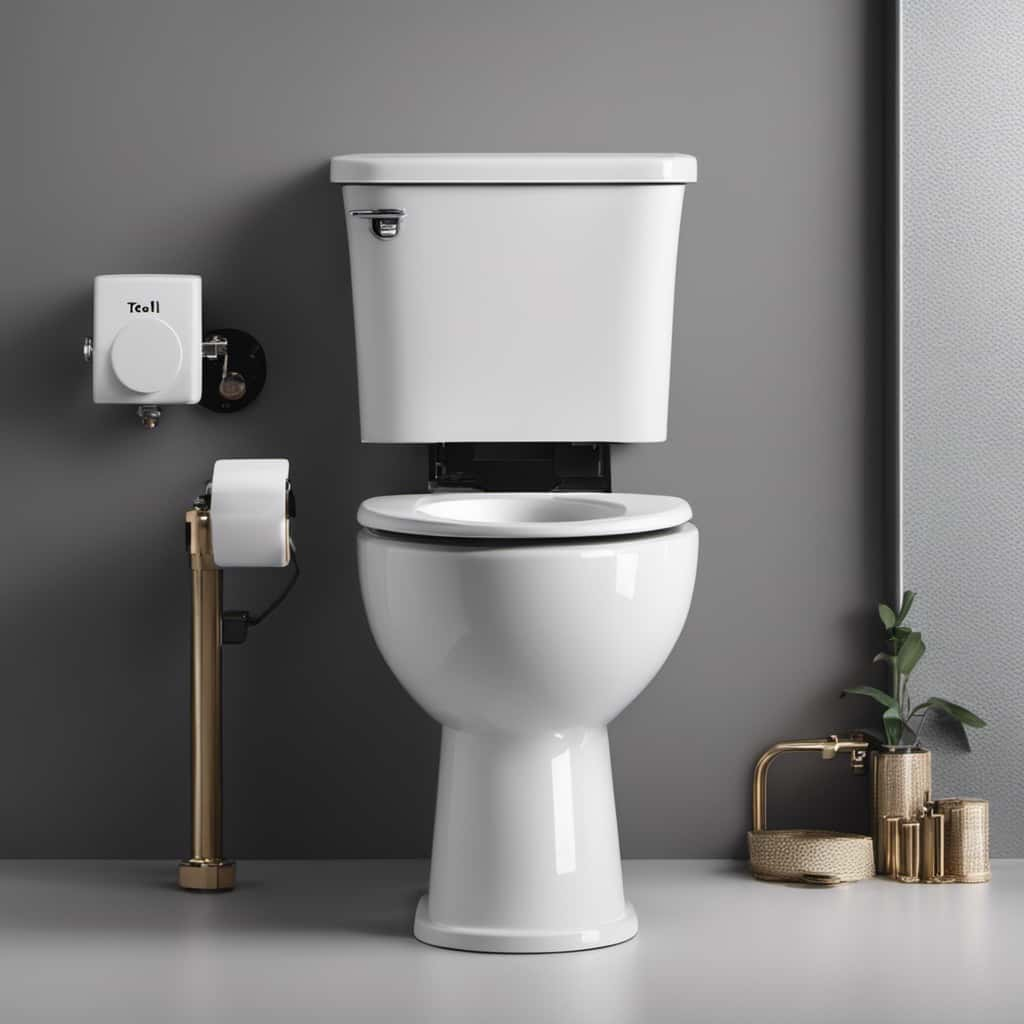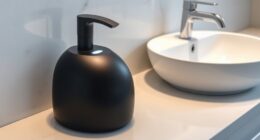We’ve all done it – absentmindedly tossing our used q-tips into the toilet without a second thought. But is it really safe?
In this article, we delve into the potential risks of flushing q-tips down the toilet. From the environmental impact to the effect on plumbing systems, we analyze the consequences of this common practice.
Join us as we explore safer alternatives and proper disposal methods for q-tips, providing you with the knowledge needed for responsible and sustainable waste management.
Key Takeaways
- Flushing Q-tips increases the chances of water pollution and harm to marine life.
- Flushing Q-tips can cause damage to pipes and plumbing infrastructure.
- Safer alternatives for disposing of Q-tips include using biodegradable options and following proper disposal methods.
- Public awareness and education are important in minimizing the environmental impact of flushing Q-tips.
The Potential Risks of Flushing Q-Tips
Flushing Q-tips down the toilet can pose potential risks that we need to be aware of.

When it comes to ear infections, improper disposal of Q-tips can exacerbate the problem. By flushing them, we increase the chances of these cotton swabs ending up in our water systems. This can have a detrimental impact on marine life.
The fibers from Q-tips can accumulate in water bodies, leading to pollution and harming aquatic organisms. Additionally, the presence of Q-tips in water can serve as a breeding ground for bacteria, increasing the risk of infections.
It’s essential to properly dispose of Q-tips in the trash to prevent these risks. By doing so, we can protect both our own health and the well-being of marine ecosystems.
Environmental Impact of Flushing Q-Tips
Continuing from the potential risks of flushing Q-tips, we need to be aware of the detrimental environmental impact caused by improper disposal. Improperly disposing of Q-tips by flushing them down the toilet can contribute to marine pollution and microplastic contamination. Here are three reasons why flushing Q-tips can harm the environment:

- Marine pollution: When Q-tips are flushed down the toilet, they can end up in oceans, rivers, and other water bodies. This can pose a threat to marine life, as marine animals may mistake them for food or get entangled in them, leading to injury or death.
- Microplastic contamination: Q-tips are made of plastic, and when they break down in the environment, they can release microplastics. These tiny plastic particles can be ingested by marine organisms, entering the food chain and potentially causing harm to both marine life and humans.
- Water pollution: Flushing Q-tips can contribute to water pollution, as they can clog pipes and sewage systems. This can lead to sewage backups and overflow, releasing harmful substances into the environment.
Understanding the environmental impact of flushing Q-tips is crucial in making informed decisions about their disposal. However, it isn’t just the environment that’s affected by improper disposal. The effect on plumbing systems is another important aspect to consider.
Effect on Plumbing Systems
As we consider the potential risks and environmental impact of flushing Q-tips, it’s important to understand the effect these items can have on our plumbing systems.
When Q-tips are flushed down the toilet, they can cause significant damage to our pipes and plumbing infrastructure. The cotton swabs can get stuck in the pipes, leading to blockages and clogs. Over time, these blockages can result in water backup and even burst pipes. This not only causes inconvenience but also leads to costly repairs.
Additionally, the impact on water quality can’t be ignored. When Q-tips accumulate in the plumbing system, they can contribute to the contamination of the water supply, posing health risks to humans and wildlife.

Therefore, it’s crucial to dispose of Q-tips properly and avoid flushing them down the toilet to prevent damage to our plumbing systems and ensure the integrity of our water supply.
Safer Alternatives for Disposing Q-Tips
To safely dispose of Q-tips, we can utilize alternative methods that don’t involve flushing them down the toilet. It’s important to consider the environmental impact of our actions and choose more sustainable options.
Here are three safer alternatives for disposing of Q-tips:
- Biodegradable Options: Look for Q-tips made from biodegradable materials such as bamboo or organic cotton. These options break down naturally over time, reducing their environmental impact.
- Recycling Options: Instead of flushing Q-tips, consider recycling them. Some recycling centers accept Q-tips made from plastic or cardboard. Be sure to check with your local recycling facility to determine if they accept Q-tips and the specific guidelines for recycling them.
- Waste Bin: The simplest and most accessible option is to dispose of Q-tips in the waste bin. Make sure to place them in a sealed bag or container to prevent any potential contamination.
Proper Disposal Methods for Q-Tips
After discussing safer alternatives for disposing of Q-tips, let’s now explore proper disposal methods for these everyday items.

When it comes to Q-tip disposal, recycling options are limited. Most recycling facilities don’t accept Q-tips due to their small size and composition. However, there are alternative options available for those who wish to dispose of Q-tips responsibly.
One option is to use biodegradable Q-tips. These Q-tips are made from materials that can break down naturally over time, reducing their impact on the environment. Biodegradable Q-tips can be disposed of in compost bins or with other organic waste.
Another option is to place used Q-tips in a sealable plastic bag and dispose of them with regular household trash. This method ensures that the Q-tips are properly contained and don’t end up in waterways or harm wildlife.
Conclusion
In conclusion, it isn’t recommended to flush Q-tips down the toilet due to the potential risks they pose. Not only can they have negative environmental impacts by contributing to pollution, but they can also cause plumbing system issues.

A study conducted by the Environmental Protection Agency found that approximately 850 billion gallons of water are wasted each year due to clogged pipes caused by improper disposal of items like Q-tips.
It’s important to follow proper disposal methods to minimize these risks.










